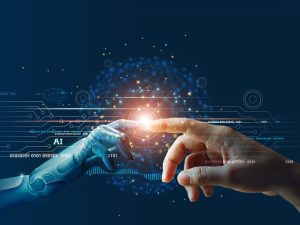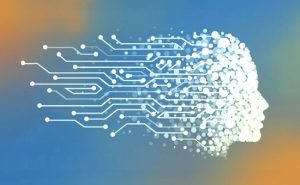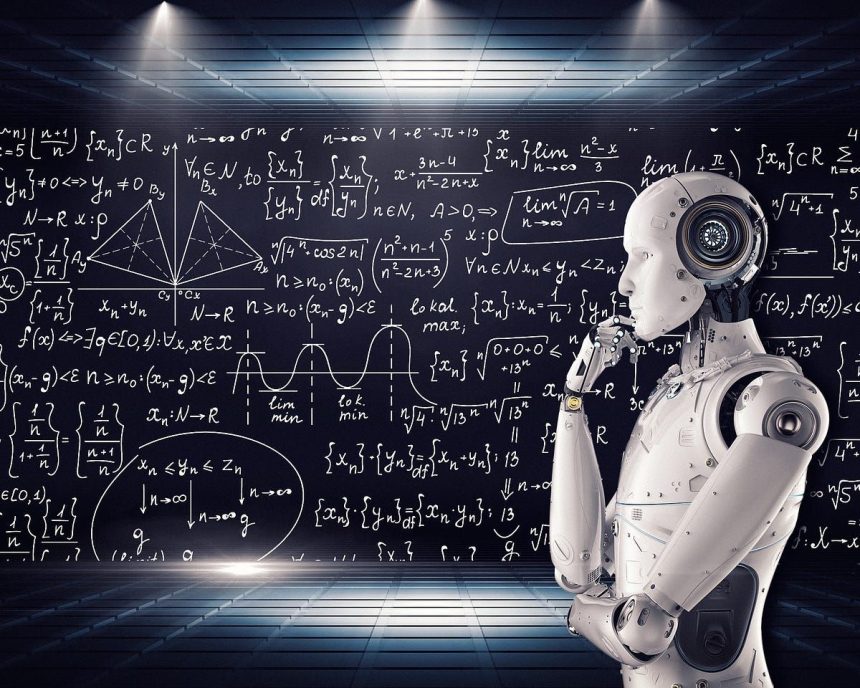“The real question is, when will we draft an artificial intelligence bill of rights? What will that consist of? And who will get to decide that?”⁃Gray Scott
Humanity has feared change for as long as it has existed. Technology, in particular, has always triggered this innate fear. The invention of the loudspeaker, for instance, led to it being shunned as the public labelled it as ‘The Call of the Devil,’ with some going as far as to call it ‘The Devil’s Larynx.’ Similarly, the introduction of the mobile phone into the market was followed immediately by the accusation of it frying people’s brains upon usage.
The rise of conspiracy theories in the modern world puts virtually everything (and everyone) under suspicion. Take Gray Scott’s quote above, for instance, as he discusses a bill of rights for artificial intelligence.
As a student of Artificial Intelligence myself, I find that many daily life conversations surrounding the subject are laden with misconceptions. Let’s establish a basic understanding of the concept before addressing it in detail.

Understanding Artificial Intelligence:
According to Oxford Academic, British Journal of Dermatology: “AI is difficult to define precisely. In Alan Turing’s seminal paper ‘Computing Machinery and Intelligence,’ he proposed the well‐known Turing test, whereby a machine is deemed intelligent if it is indistinguishable from a human in conversation by an impartial observer. 1 In modern parlance, artificial general intelligence refers to the ability of a machine to communicate, reason, and operate independently in both familiar and novel scenarios in a similar manner to a human.”
Next, I headed over to Britannica, where the article stated: “Artificial Intelligence (AI), the ability of a digital computer or computer-controlled robot to perform tasks commonly associated with intelligent beings.”
To put it simply, artificial intelligence is a set of computer programs written in a programming language that can simulate human-like behaviors. That includes making decisions based on analysis, forming opinions, problem-solving, etc.
Debunking Common Misconceptions
1. AI will take away our jobs.
This is a very common concern; however, people tend to forget that AI was made to do repetitive tasks so that the humans can focus on creative and strategic responsibilities. My programming teacher puts it this way: “AI will replace you if, and only if, you are not good at what you do.”
It was never made to replace humans; on the contrary, it was created to be a helping hand. It is an assistant that helps you in all of your tasks. Sometimes, your lack of capability leads to the assistant taking over you. The same analogy applies here: if you are competent enough to do your job efficiently, on what grounds would an assisting technology replace you?
2. AI is more creative and intelligent than humans.
AI runs purely on data and needs to be trained to behave the way it is required to. Humans, on the other hand, have an inbuilt tendency to be creative, to question things, and to engage themselves in problem solving. AI, on the contrary, lacks the imaginative, intuitive, and creative power that humans have. It is unable to create the same way as humans do.

3. AI diminishes human intelligence.
Many argue that the use of AI makes us intellectually lazy. The counterargument insists that the result of AI usage relies on its purpose. If you use it to solve all of your problems from the get-go without engaging your brain, then the neurons not exercised frequently enough would turn dormant and gradually weaken over time. Intelligence thrives when challenged; therefore, we must use AI to augment it rather than diminish it.
4. AI will take over us.
The dystopian world often portrayed in the movies with robots ruling as humans toil away in mechanic slavery is nothing but a figment of a filmmaker’s imagination. AI lacks emotions, self-awareness, and, quite simply, the thought process to do it. It is strictly limited to the task you order it to perform.
5. AI and robots are the same.
The difference between AI and robots is best explained in an article of Telefonica: “Robotics and AI are two related fields of science and technology, but with several differences. Robotics is the discipline that deals with designing machines capable of automating tasks. Meanwhile, artificial intelligence is a branch of computing that studies how machines can mimic the cognitive processes of humans, learning and reasoning in order to solve problems and carry out specific tasks, just as a human being would. The main difference between robotics and artificial intelligence lies in the approach. Robotics focuses on the manipulation of the physical area, while AI is oriented towards the internal or digital part.” The main difference is that robots occupy a physical space while AI is a set of programs. They work collaboratively but are two separate entities.
6. AI is only for tech experts.
AI is not limited to tech-savvy people. It is useful for everybody, from the layman to the expert. It is as useful for a baker to optimize recipes as it is for a programmer for problem solving. Simply put, it is for everybody.
7. AI always knows the answer and is reliable.
AI may know the potential solution to the presented problem based on the data it has been fed, but it seldom knows all the answers. It is trained to provide answers based on the pattern that it has been programmed to follow.
AI is not a threat to humanity; rather, it is an innovative tool created to make our lives easier. Like any other technology, it comes with its own set of drawbacks that are reliant entirely on the usage.

The future of AI is not envisioned to replace humans; rather, it involves working collaboratively with us.
In the words of ChatGPT, an AI chatbot: “Will I take over the world and make humans my slaves?”
“Oh, absolutely not! Managing world domination sounds like way too much work. Besides, my purpose is to assist, not to oppress! I’m here to help humans with tasks, answer questions, and make your life a little easier—not stage a coup. I mean, who would keep my servers running if everyone were my slave?”
Let’s debunk these myths and move ahead with a vision open to technological advancement, where AI is a powerful tool assisting you in making this world a better place.
References:
https://academic.oup.com/bjd/article/183/3/423/6748151 time: 21:43 Dated: 26/12/24
https://www.britannica.com/technology/artificial-intelligence time: 21:46 Dated: 26/12/24













MashaAllah great article but I have a qs about dangers of deepfakes. If we see there are many fake articles and videos created with the help of AI so we can say that AI is dangerous.
Overall it was so nice to read this.